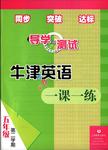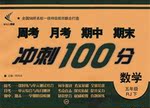题目内容
Long long ago, there was a small village.This village had a 31 tradition.At the beginning of every year, any boy who had reached the age of majority (成年) was given land and money to build a home.The boy had to 32 his home before winter.If his home failed to endure the cold weather in winter, the villagers could not 33 him in any way.
One 34 , Paul and Marc reached their majority.They 35 their land and money and decided to search nearby villages for ideas on building their homes.In each village, they found the nicest 36 and talked to the owners.Each owner gladly offered 37 .
After Marc saw several homes, he 38 the best ideas and went back to his own land.Paul, however, continued collecting more ideas.Soon he had so many great ideas that he began to 39 some of them.But he always believed he could find even better ideas in the next village.
Marc began building his home.He had several false starts, 40 his home gradually rose from his land.By fall, Marc had finished his home.It wasn't perfect,but it was strong and he could 41 it later. Paul enjoyed all the beautiful homes and 42 with home owners.The first snow came and Paul, realizing he was running out of time, 43 back to his land.He built the best home he could in the time he had, but it was weak.The first winter storm destroyed his home and he froze to 44 .The villagers mourned for him.
Marc survived the winter.Each year, Marc searched for other good ideas he could use to make his own home look better.He became a leader in the village, 45 a family, and lived a happy, content life.
| 【小题1】 |
|
| 【小题2】 |
|
| 【小题3】 |
|
| 【小题4】 |
|
| 【小题5】 |
|
| 【小题6】 |
|
| 【小题7】 |
|
| 【小题8】 |
|
| 【小题9】 |
|
| 【小题10】 |
|
| 【小题11】 |
|
| 【小题12】 |
|
| 【小题13】 |
|
| 【小题14】 |
|
| 【小题15】 |
|
【小题1】A
【小题2】C
【小题3】A
【小题4】D
【小题5】B
【小题6】C
【小题7】D
【小题8】B
【小题9】A
【小题10】C
【小题11】D
【小题12】A
【小题13】B
【小题14】B
【小题15】D
解析试题分析:文章通过两个年轻人建房子的事情告诉我们做如何事情都要有计划。
【小题1】A 形容词辨析。根据下文内容可知这是一个很奇怪的传统,不提供任何帮助,让年轻人自己造房子。
【小题2】C 动词辨析。A发现;B制作;C完成;D买;指要带冬天到来之前完成房子的建设。
【小题3】A 动词辨析。A.help帮助B.encourage鼓励C.scold责备D.persuade劝说,村民不会以任何方式帮助他们,选A.
【小题4】D 名词辨析。根据下文可知他们俩是在春天接受任务的。
【小题5】B 动词辨析。A交换;B接受;C认出;D建议;指他们接受了给他们的土地和钱。
【小题6】C 名词辨析。指他们到各个村庄去看好房子,和主人交流,选C。
【小题7】D 名词辨析。那些漂亮房子的主人也给了他们很好的建议。选D。
【小题8】B 动词辨析。A期望;B收集;C创造;D理解;指Marc收集到很多好主意,回去建房子了。
【小题9】A 动词辨析。A忘记;B认为;C取代;D怀疑。指Paul得到的主意很多,他都忘记了一些。
【小题10】C 连词辨析。根据上文可知他开始的时候,犯了很多错误,但是他的房子还是慢慢地建起来了。
【小题11】D 动词辨析。指Marc的房子虽然不完美,但是足够坚固,而且他还有时间来提高改善。
【小题12】A 名词辨析。A对话;B成就;C斗争;D争论。指Paul仍然在欣赏那些房子仍然和和主人的交谈。
【小题13】B 动词辨析。A开车;B跑;C飞;D移动。指下雪了,Paul意识到时间不够了,所以匆忙跑回去。
【小题14】B 名词辨析。A.blindness失明B.death 死亡C.sadness悲伤D.illness疾病,暴风雪来了,房子倒塌了,他也被冻死了。
【小题15】D 动词辨析。A带来;B挣得;C联系;D抚养。指Marc有了自己的家庭,养活了一家人。
考点:考查故事类短文
点评:文章通过两个年轻人建房子的事情告诉我们做如何事情都要有计划。集中考查了考生的归纳整理能力,要求能抓住段落中的中心句和关键词准确的把握段落大意。这类阅读理解要求考生根据文章所述事件的逻辑关系,或根据作者所阐述的观点理论,对文章未涉及的现象、事例给以解释。考生首先要仔细阅读短文,完整了解信息,准确把握作者观点。

 导学与测试系列答案
导学与测试系列答案 新非凡教辅冲刺100分系列答案
新非凡教辅冲刺100分系列答案We often see dogs always put their tongues(舌头)out in summer. But 1 the dogs didn’t do so. Long long ago, the dog was very bad .He 2 did a good deed.
One summer day the dog 3 into a forest. 4 he saw the forest was beautiful and clean , a 5 idea came to him. Then he brought 6 dirty things to the forest and put 7 everywhere. What he did was 8 by a monkey who hid 9 a big tree. He didn’t tell anyone 10 the dog did because 11 did not know why the dog did so.
Several days 12 ,it got hotter and hotter , and the dirty things became rotten(腐烂).The air smelt 13 . Many animals fell ill. All the other animals became angry and tried 14 who had done it and punish him. The money knew 15 bad the dog was. So he 16 the other animals the truth. They catch up with the dog and 17 him eat all the dirty things and 18 the forest clean.
After that the dog 19 honest. To remember this, he put his tongue out in 20.
| 【小题1】 |
|
| 【小题2】 |
|
| 【小题3】 |
|
| 【小题4】 |
|
| 【小题5】 |
|
| 【小题6】 |
|
| 【小题7】 |
|
| 【小题8】 |
|
| 【小题9】 |
|
| 【小题10】 |
|
| 【小题11】 |
|
| 【小题12】 |
|
| 【小题13】 |
|
| 【小题14】 |
|
| 【小题15】 |
|
| 【小题16】 |
|
| 【小题17】 |
|
| 【小题18】 |
|
| 【小题19】 |
|
| 【小题20】 |
|
 Sitting too much is now listed with
smoking and junk food as a bad habit that increases your risk of heart disease.
Sitting too much is now listed with
smoking and junk food as a bad habit that increases your risk of heart disease. Sitting too much is now listed with smoking and junk food as a bad habit that increases your risk of heart disease.
Sitting too much is now listed with smoking and junk food as a bad habit that increases your risk of heart disease.